by Andy Macia
Read any good medical dissertations lately? No? Join the club. Huge, densely packed blocks of facts don’t make for an enjoyable read by the pool or a soothing prelude to sleep. They’re written by specialists for specialists. What the rest of us need is something a bit less intense, a bit more fun.
That is true even of a serious subject like alcohol abuse, because although for many people drinking is part of the social phenomenon we call “having fun”, it’s a bizarre occurrence which, in the longer term, does you more harm than good.
The science of alcohol consumption is best served in shot-sized measures, which is what the infographic does.
I’m interested in this stuff because I am a recovering alcoholic. I’ve been to the bottom of the pit and despaired of ever getting out, but I made it.
Think you need a bit more information about alcohol addiction to see if you’re heading that way too?
Since my alcohol detox I have now been sober for nine years and have built a new life full of success and happiness, with a lot of hard work and a bit of luck along the way.
Nowadays I like to help people and hopefully guide them a little so they don’t go down the same path as I did.
Alcohol has a great PR team. Advertising agencies and marketing departments tell you all the pleasures that await you in a bottle of their products. What they don’t tell you is the harm it can do from the moment it enters your mouth.
I’m going to let the graphic do the hard work and just give you the key points to look out for.

The mouth
Alcohol dehydrates the cell walls and destroys nutrients, which can make the
mouth and throat vulnerable to cancer.

The oesophagus
That’s the tube that leads from the throat to the stomach. Too much alcohol can lead to gastroesophageal reflux disease or GERD – where corrosive acid comes back up, causing what for some reason is known as heartburn. Sexy, eh?
And it gets worse: over time this can cause damage to the oesophagus, again possibly leading to cancer.
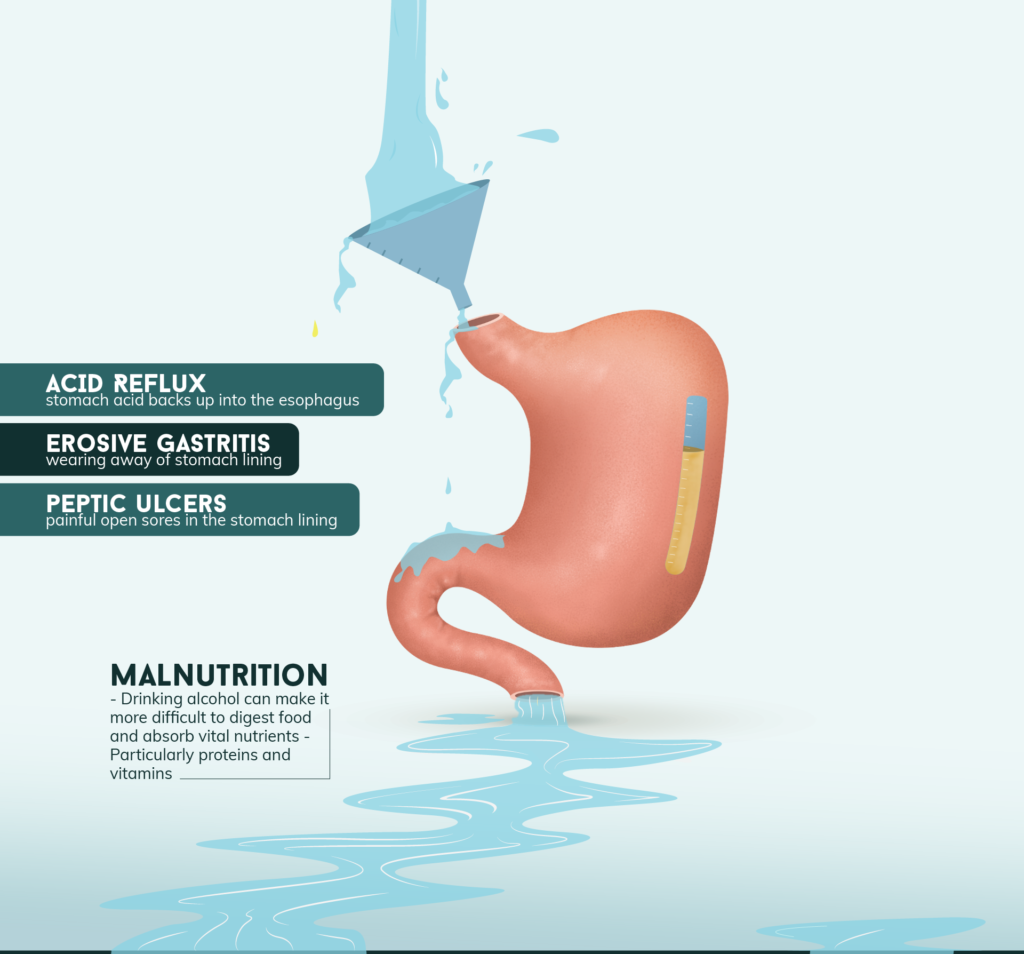
The stomach
Abnormal production of acid caused by alcohol eats away at the lining of the stomach, causing soreness, and can lead to peptic ulcers: open sores, and they’re bad enough on your leg, let alone in your stomach.
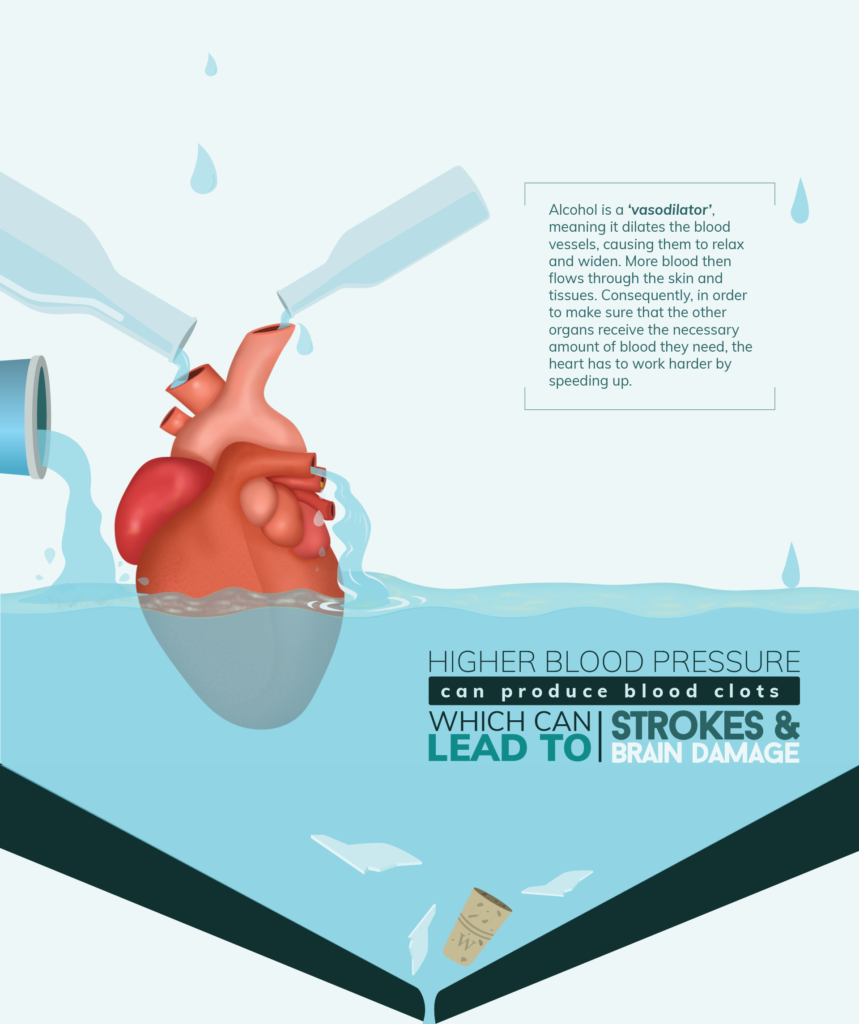
The heart
Alcohol causes blood pressure to drop in the short term, which obliges the heart to overwork to compensate. And in the long term the blood pressure goes up. All of this means heart attacks and strokes.
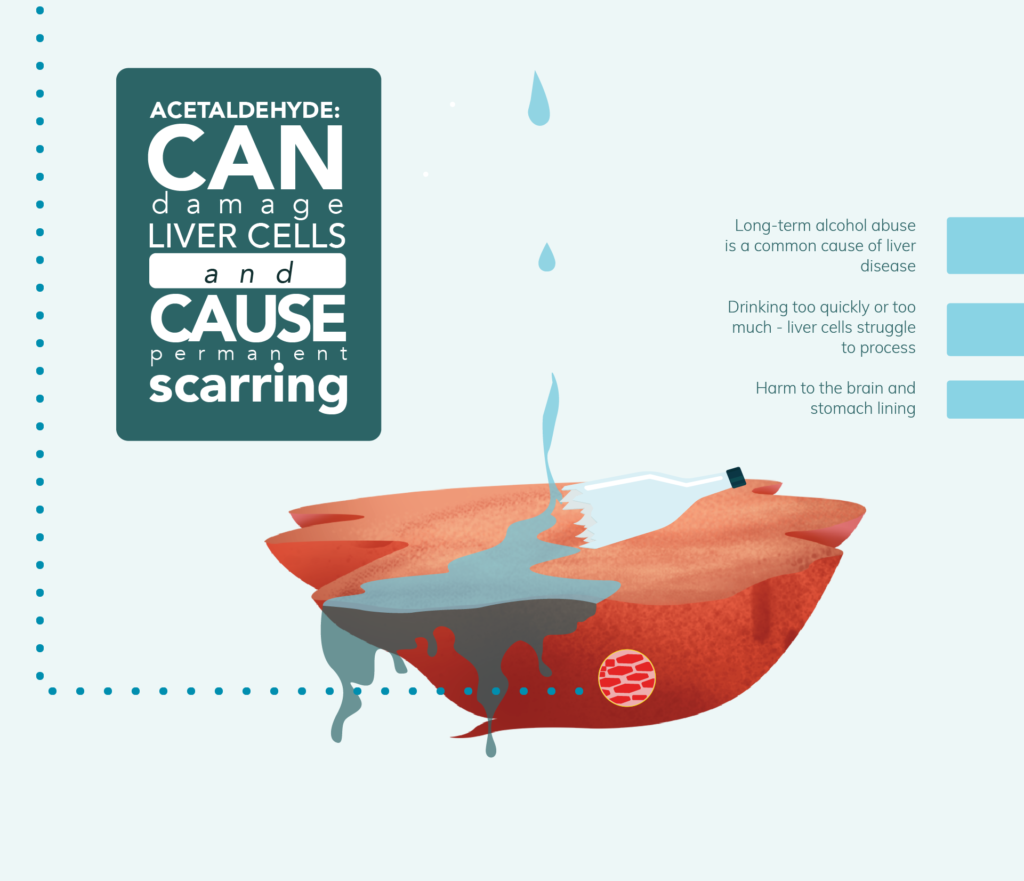
The liver
This large organ performs a number of tasks to keep the body functioning normally: it detoxifies, breaks down chemicals and generally cleans up. Excess alcohol damages it, making it fatty and eventually full of scar tissue, which makes its job impossible.
There are natural ways to aid detoxing, but it’s better to not put the toxins there in the first place.
The hydration system
Water is essential for getting rid of toxins and keeping the body running. Alcohol introduces toxins, which water escorts from the premises, leaving you short of H2O. That’s why a hangover makes you thirsty and causes headaches.
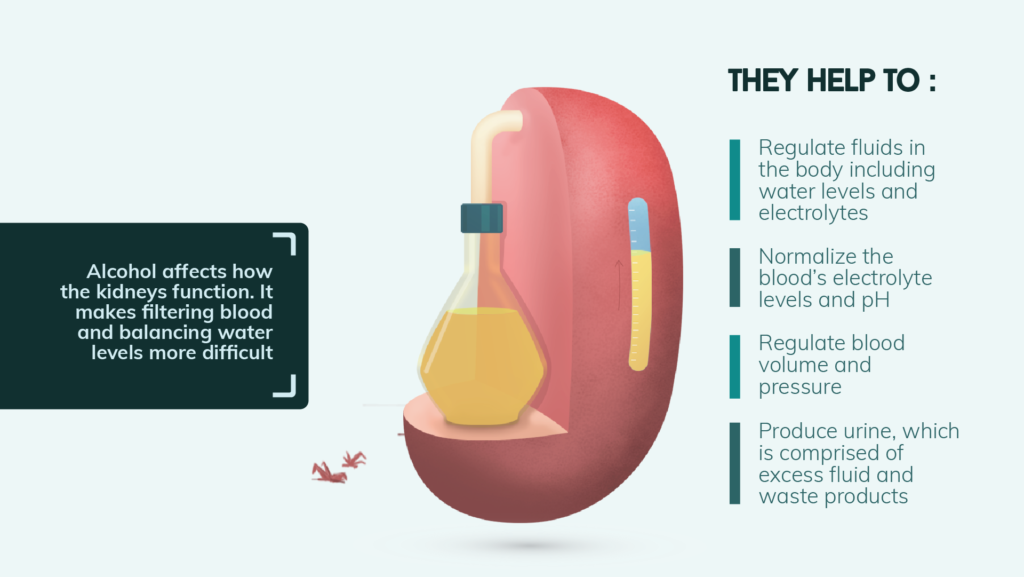
The kidneys
These filter harmful substances out of your system, and alcohol damages them, depriving them of the water they need to do their job.

The brain
When you’re preventing the rest of the body from working properly, it’s hardly surprising the brain suffers too. And that’s in addition to the decisions it makes when alcohol is interfering with the balance between excitement and good sense. This can make you drive when you’re over the legal limit, sleep with someone you know you shouldn’t, spend all your money on something stupid – the list goes on.
So these are the basic facts. The info-graphic gives you more of the technical side of things. All in all it’s pretty persuasive, I think you’ll agree.





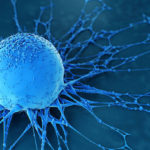





More Stories
Oncology Improving The Quality Of Care
The Sensual Massage – Unlocks Your Potential
Increase Quality of Life with Pectus Carinatum Treatment